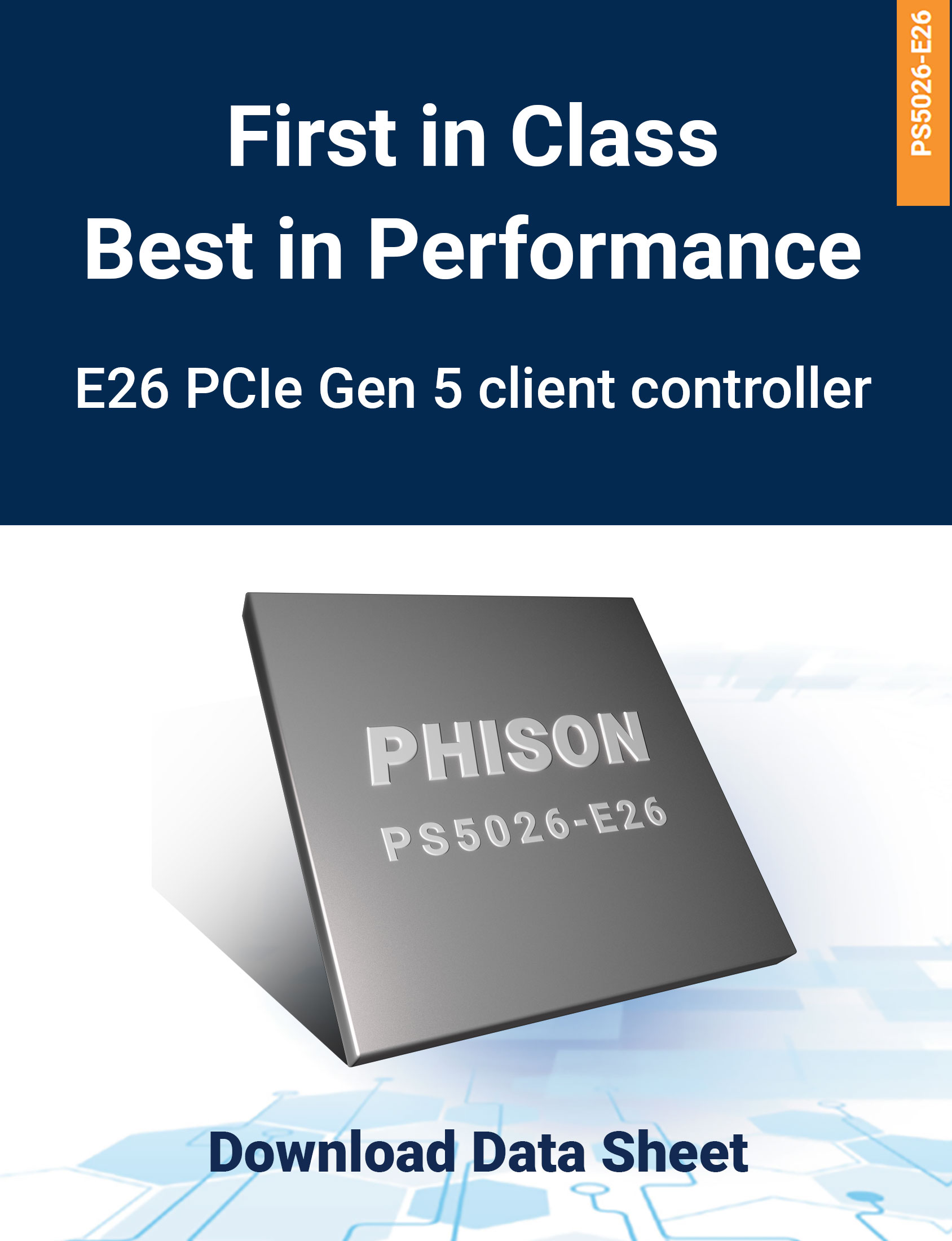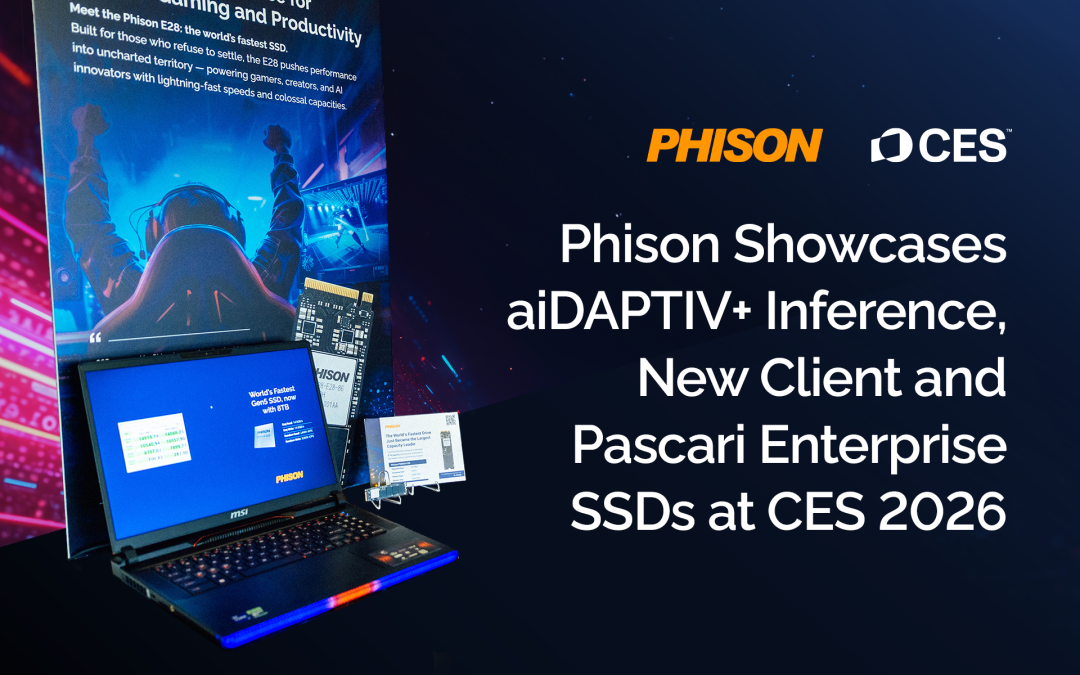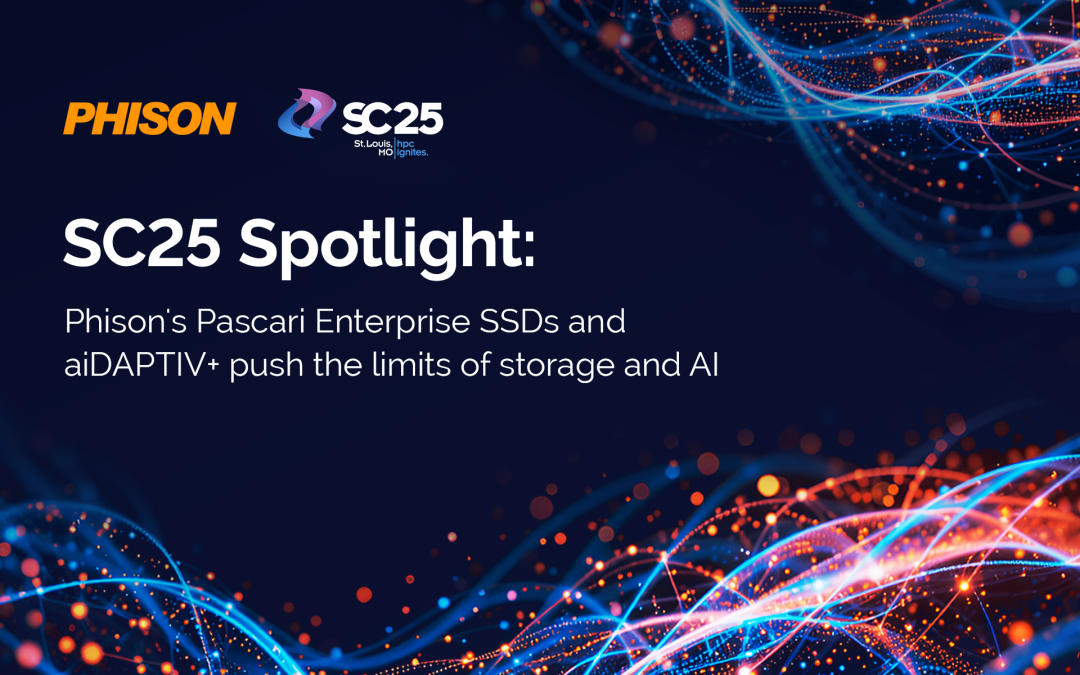The company showcased its latest retimer and redriver signal integrity solutions at FMS 2024.
At the Future of Memory and Storage (FMS) event in August, Phison introduced its advanced PCIe Gen6 ecosystem for modern data centers with the launch of its latest redriver and retimer products.
The Phison PS7161 (4-channel) and PS7162 (8-channel) PCIe Gen6 redriver ICs help enhance signal integrity and extend reach in the PCIe Gen6 era. The Phison PS7261 retimer is a 16-lane PCIe Gen6 retimer IC designed to improve signal integrity and extend data transmission reach across fill 16-lane connections.
Phison’s signal conditioning products are designed specifically to meet the data infrastructure demands of artificial intelligence and machine learning, edge computing, high-performance computing, and other data-intensive, next-gen applications.
What is PCIe signal conditioning and why does it matter?
Simply put, signal conditioning is “the manipulation of an analog signal in such a way that it meets the requirements of the next stage for further processing.” When it comes to understanding PCIe signal conditioning, we need to start with a basic definition:
Peripheral Component Interconnect Express (PCIe)
This is a type of connection primarily used to transfer data at high speeds between electrical components, such as a PC motherboard and an SSD storage solution. PCIe connections use a variety of “lane sizes” to accommodate various bandwidth requirements. For example, a USB port might only need an x1 lane whereas a graphics card would require x16 lanes to transmit high-res images.
With PCIe Gen5 and offering higher data transmission rates than previous generations—and Gen6 on the near horizon—it has become more and more difficult to maintain adequate signal integrity without driving system prices way up.
Enter PCIe signal conditioners. Devices such as redrivers, retimers and multiplexers are widely used to help enhance signal reach and quality between today’s advanced PCIe components. Phison has longtime expertise in designing signal conditioners, particularly redrivers and retimers:
-
-
- Redrivers help increase signal reach, meaning they amplify the signal so it can travel beyond the standard PCIe protocol range without degradation. They are protocol-agnostic and contain equalizers to boost the signal wherever it is negatively affected by frequencies within the components. Downsides include amplifying noise as well as signals and causing random jitter.
-
-
-
- Retimers are more sophisticated and complex devices designed to overcome some of the inherent downsides of redrivers since the release of PCIe Gen4. They are protocol-aware and are able to recover lost signal data and retransmit a fresh copy of it. They can also eliminate deterministic jitter caused by things like mismatched impedance or crosstalk and reset random jitter.
-
Phison’s signal conditioners enable high-speed PCIe and CXL performance to meet next-generation needs
In addition to PCIe, another interconnect technology called Compute Express Link (CXL) is becoming increasingly popular in today’s high-performance computing systems. Built on the PCIe interface, CXL has a narrower focus. While PCIe is general-purpose and connects a range of different components within a system, CXL is specifically designed to connect CPUs to devices or memory. It can handle vast stores of data and enable high-speed transmission and access for advanced projects such as real-time analytics and AI/machine learning datasets.
Phison offers the widest portfolio of multi-channel PCIe Gen5 and Gen6 redriver and retimer solutions designed specifically to meet today’s intensive data infrastructure demands. The company’s recent press release also stated that Phison is the “only provider to offer PCIe 5.0, CXL 2.0-compatible retimer and redriver signal integrity solutions and PCIe 5.0 enterprise SSDs.” In this way, the company is demonstrating its “holistic vision” for a complete PCIe Gen5 data ecosystem that can meet the high demands of applications in the era of AI.
Phison US President and General Manager Michael Wu stated, “Phison’s accumulated experience in high-speed signaling enables our team to deliver retimer and redriver design solutions that are optimized for top signal integration, low power usage, and high temperature endurance, to deliver interface speeds for the most challenging compute environments.”
The company’s retimer enables clear, precise data signals over long PCIe Gen5 and Gen6 cable lengths, such as the ones typically found between rack storage enclosures and server nodes. And Phison redrivers were the industry’s first PCIe Gen5 redrivers to receive PCI-SIG compliance.
Phison PHiTUNE is another important differentiator
In addition to offering features and capabilities that make its redriver and retimer solutions lead the industry, Phison redrivers also come with an exclusive auto-tuning tool called PHiTUNE. The proprietary software uses AI and works with Phison’s E26 PCIe Gen5 SSD to detect recovery counts automatically and determine optimal EQ settings, which are then stored in the redriver’s persistent memory. With PHiTUNE, developers can analyze signal data and optimize settings for their current environment in about half an hour.
Phison’s advanced redrivers and retimers are already being deployed in the company’s partner solutions, including Intel and AMD. Customers have been positive about Phison’s more complete PCIe Gen5 and Gen6 data ecosystem that is able to support today’s most intensive data transmission needs.
Frequently Asked Questions (FAQ) :
What is PHiTUNE and how does it benefit integrators?
PHiTUNE is Phison’s AI-based tuning tool that automatically detects signal issues and adjusts equalization settings. It stores the optimal configuration in the redriver’s persistent memory. This enables integrators to quickly fine-tune signal performance in under 30 minutes, simplifying deployment and reducing debug time.
How does Phison support CXL-based infrastructure?
Phison’s signal conditioners are CXL 2.0 compatible and support efficient data paths between CPUs and memory accelerators. These components are essential for real-time analytics and AI where latency, bandwidth, and data integrity are critical.
Are Phison’s redrivers and retimers interoperable with other vendors’ platforms?
Yes. Phison’s signal conditioning components are deployed in systems from Intel and AMD and are designed for compatibility across PCIe architectures. This ensures smooth integration and flexibility for a variety of OEM and enterprise applications.
How does Phison’s signal conditioner portfolio scale across channels and lanes?
Phison offers 4-channel and 8-channel redrivers along with a 16-lane retimer. This range enables customization across different system topologies and form factors, supporting both compact solutions and large-scale server backplanes.
Why is Phison emphasizing a holistic PCIe Gen5 ecosystem?
Phison integrates SSDs, redrivers, retimers, and tuning tools into a unified solution set. This ecosystem approach streamlines system design, accelerates deployment, and ensures optimal performance across all PCIe Gen5 and Gen6 components for data-driven enterprises.









